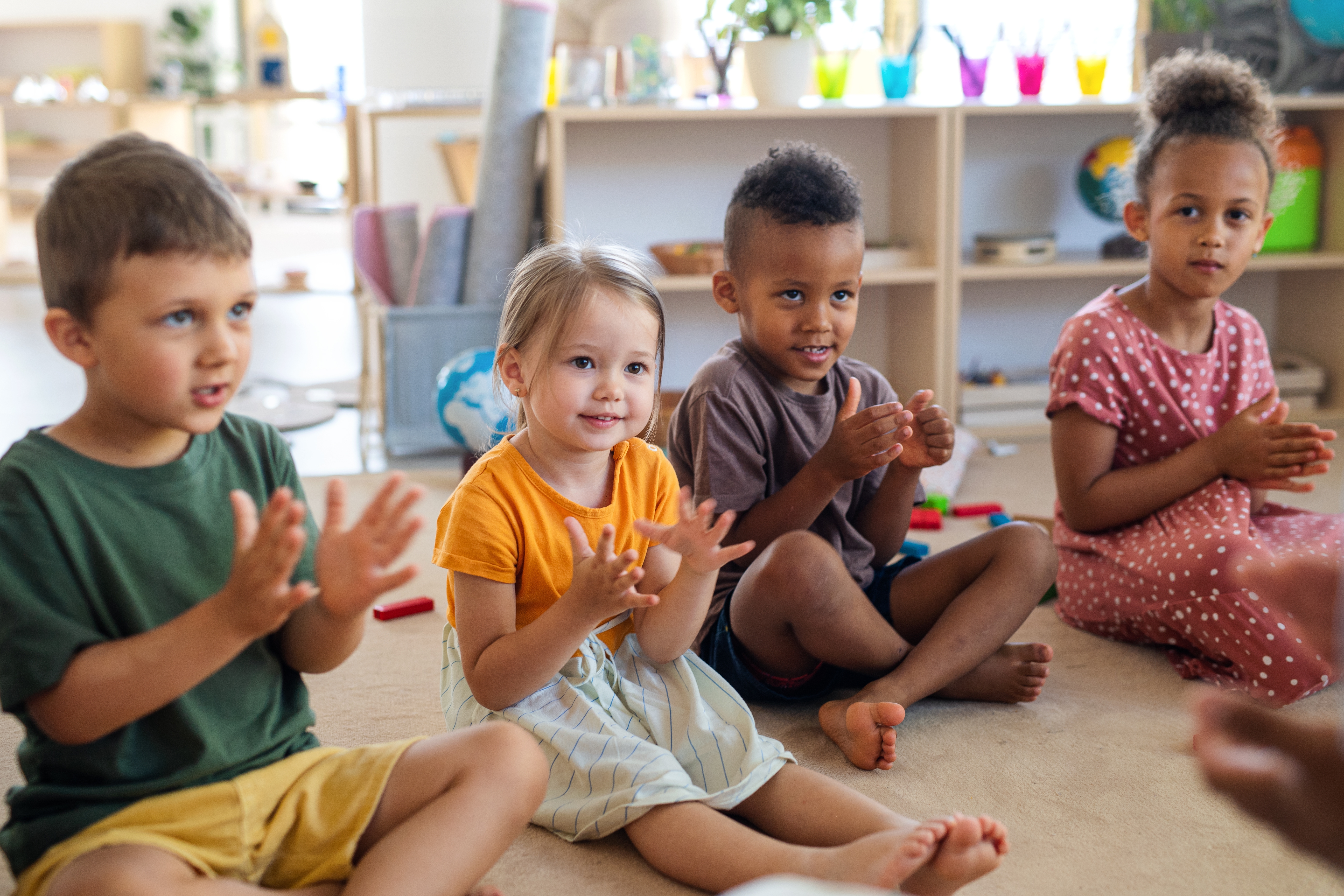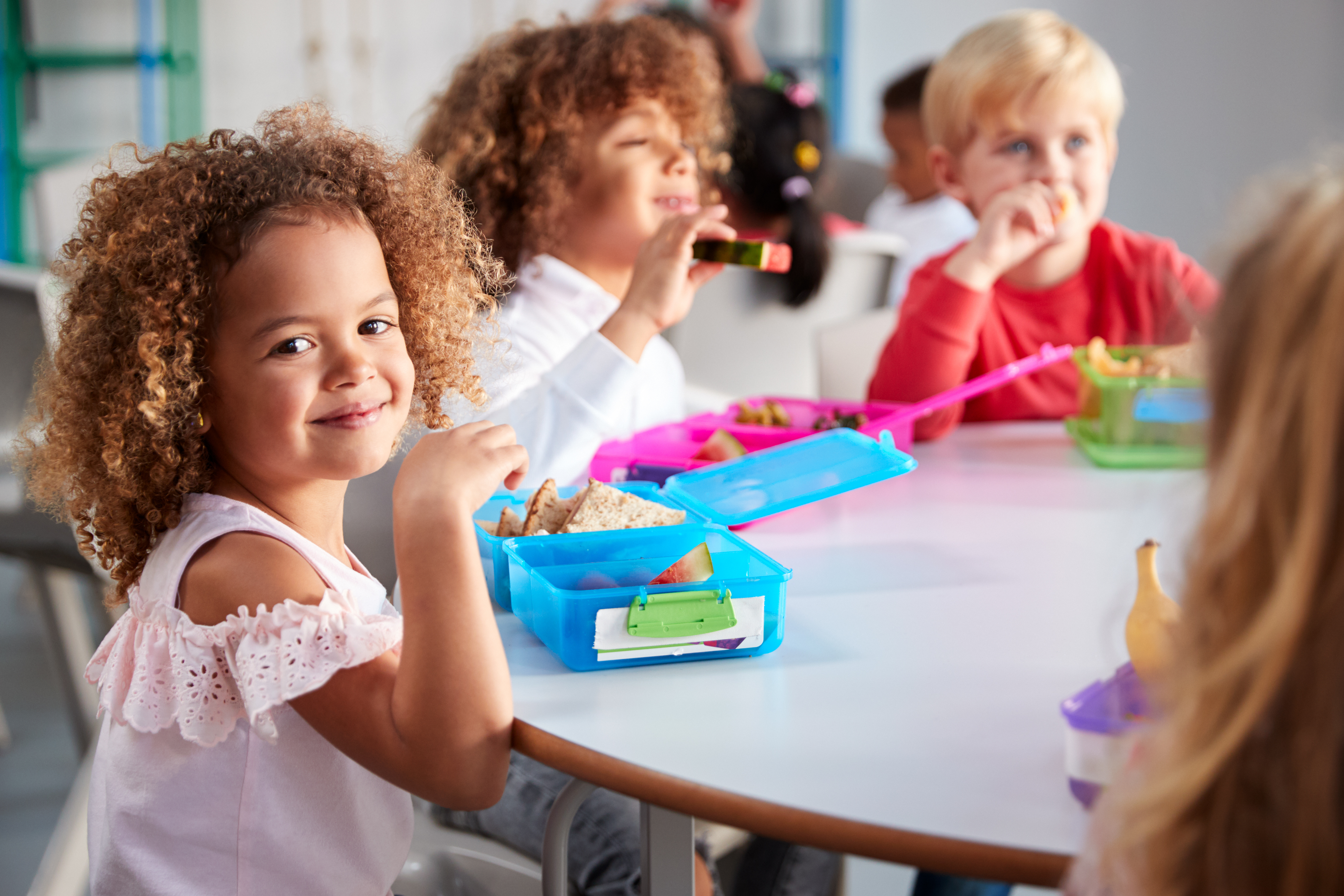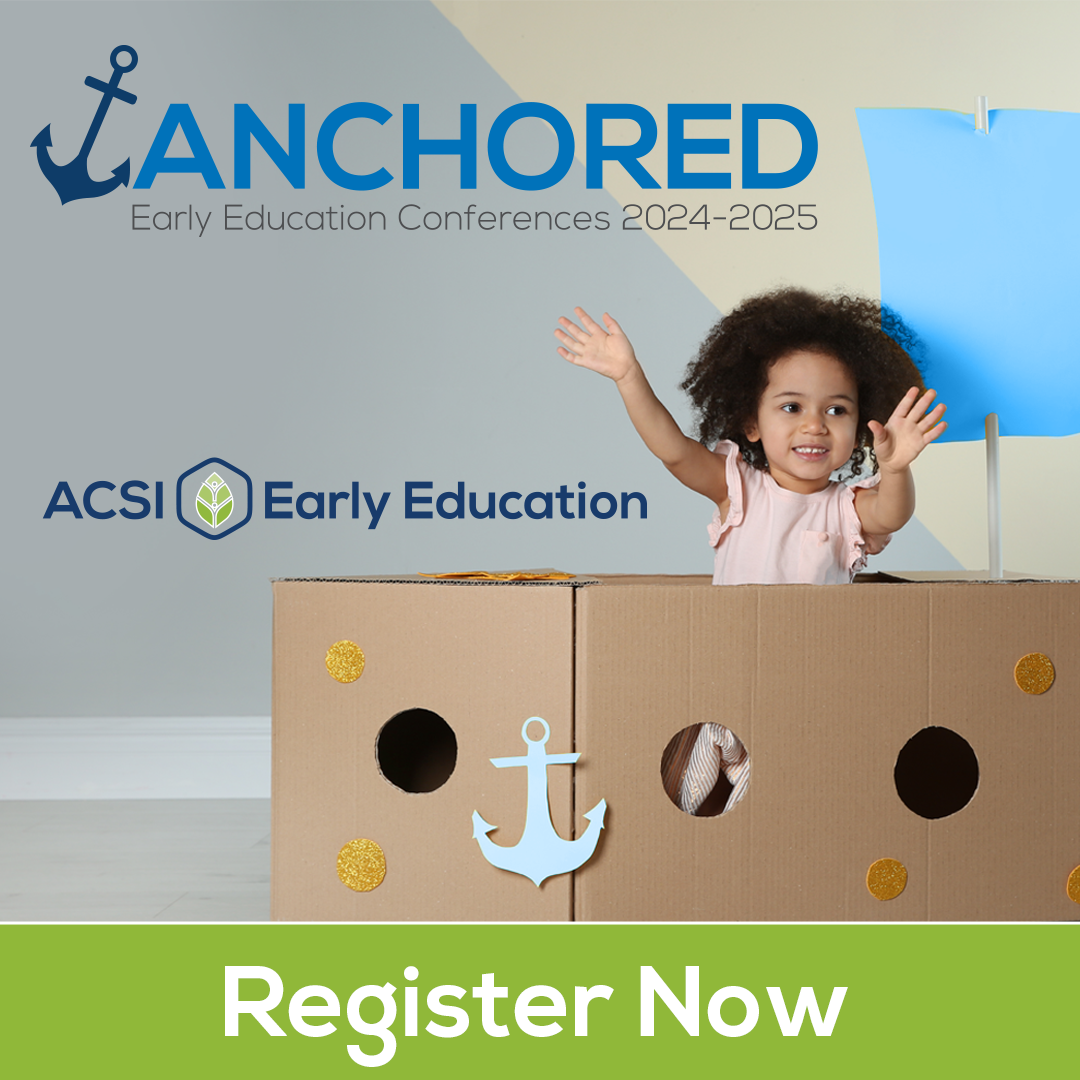
Early Education Articles
JOIN US
EE Leader Connect
With Dr. Cindy Barnum, Beth Lantz, and Dr. Suzie Mohler
Connect with Early Education Leaders for a time of topical discussion and collaboration for solutions to the challenges you face as a leader.
EE Leadership Network
With Dr. Althea Penn
Network with Early Education Leaders who aspire to higher levels of competency through a lens of a biblical worldview.
Are you passionate about early education? Join our community and never miss out on the latest news, expert insights, and exclusive offers. Subscribe to our newsletter today and stay anchored in the know!
Why Subscribe?
🌟 Exclusive Content: Be the first to receive industry news, in-depth articles, and special features that you won't find anywhere else.
💡 Expert Insights: Gain valuable knowledge from our team of experts and guest contributors, helping you stay ahead in your field.
It's Free and Easy - Select Early Education and Subscribe Today!
Seen. Known. Loved: The Transformative Power of One Caring Adult in a Child’s Life

Seen. Known. Loved: The Transformative Power of One Caring Adult in a Child’s Life
Dr. Suzie Mohler, ACSI EE Senior Coordinator, Western Division
Every child’s life is shaped by relationships, and research consistently shows that having at least one caring, committed adult can make a measurable and often transformative difference in a child’s development, well-being, and future success. One of the most robust bodies of evidence links supportive adult-child relationships with improved mental health outcomes later in life. A large study published in JAMA Psychiatry found that children with positive, nurturing relationships with at least one adult—whether a parent or other caregiver—were significantly less likely to experience depression, anxiety, and perceived stress as young adults, even in the context of adversity. The presence of a supportive adult contributes not only to emotional security in childhood but also to resilience and health into adulthood.
Resilience—the ability to adapt in the face of stress and trauma—develops through relationships and supportive environments. Consistent engagement with a trusted adult fosters essential interpersonal skills, nurtures trust, and supports children in navigating social systems, ultimately boosting their emotional coping abilities and resilience across the lifespan.
Scripture consistently testifies that God works through ordinary faithfulness to accomplish extraordinary, eternal good. One of the clearest places this is seen is in the life of a child shaped by the steady presence of one caring, godly adult. In a world marked by neglect, instability, and moral confusion, the faithful support of a single adult can become a means God uses to anchor a child in truth, dignity, and hope.
To Be Seen
Many children do not struggle because they lack intelligence or ability; they struggle because they feel invisible. Scripture teaches that every child bears the image of God (Genesis 1:27), and when an adult truly sees a child—listens attentively, notices their presence, and treats them with dignity—that adult affirms and reinforces a foundational biblical truth: their life matters before God.
Jesus Himself modeled this:
“And He took them in His arms and began blessing them, laying His hands on them.” (Mark 10:16, NASB 1995)
Christ did not rush past children. He stopped. He noticed. He touched. In doing so, He rebuked a culture that viewed children as insignificant.
To Be Known
To know a child is more than knowing their name; it is understanding their fears, tendencies, strengths, and struggles. This requires time, patience, and consistency—virtues Scripture repeatedly commends.
A child who is known by a godly adult experiences stability in a chaotic world. This kind of an adult models repentance, humility, discipline, and faithfulness—not perfection, but truth lived honestly.
Paul’s relationship with Timothy illustrates this powerfully. Timothy’s faith was nurtured not only by his mother and grandmother (2 Timothy 1:5), but also by Paul, who referred to him as a “true child in the faith” (1 Timothy 1:2). One man’s faithful investment shaped a pastor whose ministry would bless the church for generations.
To Be Loved
Biblical love is a covenantal commitment rooted in truth.
“Love is patient, love is kind… it does not rejoice in unrighteousness but rejoices with the truth.” (1 Corinthians 13:4–6, NASB 1995)
A caring adult who demonstrates biblical love for a child does three essential things:
Affirms the child’s value as God’s image-bearer
Corrects the child in love, not anger (Proverbs 13:24; Hebrews 12:11)
Points the child consistently to Christ as their ultimate hope
This kind of love forms moral clarity, emotional security, and spiritual resilience. It teaches a child that love does not abandon them when they fail, nor affirm them in sin—but calls them to holiness for their good and God’s glory.
Supporting the impact of one caring adult is developmental science. Consider these strategies:
Attachment Theory: Consistent, warm, and responsive interactions with an adult help form secure attachment patterns in children. Secure attachment is foundational for trust, emotional regulation, and interpersonal expectations throughout life.
Internal Working Models: When children feel truly seen and known by an adult—when their emotions, thoughts, and experiences are acknowledged—they internalize a sense of worthiness. This internalized sense of value becomes a psychological resource in future challenges. From a believer’s perspective, it instills the belief that every person is made in the image of God and has value.
Modeling Adaptive Relationships: Children learn how to relate to others by experiencing supportive, predictable relationships. A caring adult provides a template for empathy, conflict resolution, and social engagement.
Beyond these key points, supportive adult relationships can result in broader developmental impacts and outcomes for children in a variety of developmental areas:
Self-esteem and Confidence: Children with caring adults show greater confidence and more adaptive self-perceptions, helping them navigate academic and social challenges more effectively.
Social Skill Development: Caring adults model and reinforce healthy communication and relationship behaviors that form healthy foundations that carry into adulthood.
School Engagement and Behavior: Children with at least one supportive adult tend to have fewer behavior problems and demonstrate higher engagement at school.
Long-Term Social Functioning: Early supportive relationships contribute to stronger social competence and relationship skills later in life, which can affect everything from career success to interpersonal stability.
Finally, consider the long-term impact. Though many factors contribute to a child’s development, the presence of one consistent, caring adult stands out as a profound and evidence-based predictor of positive outcomes. From buffering against mental health challenges to fostering resilience and life skills, this relationship—characterized by genuine care, attention, and responsiveness—can help a child feel, seen, known, and loved, laying the foundation for healthier, more resilient adulthood. Research continues to underscore that relationships matter; for children, having even one adult who believes in them can change the trajectory of a life.
One caring adult—rooted in truth, marked by love, and governed by Scripture—can become a Godordained means of grace in a child’s life. To be seen, known, and loved in a biblical sense is not a small gift; it is a powerful testimony of God’s covenant faithfulness.
A caring adult’s highest calling is not to become indispensable, but to point a child beyond themselves—to Christ, who alone fully knows, perfectly loves, and eternally keeps His own. God is pleased to use one faithful life to shape another—for His glory, and for the good of generations yet to come.
References
Beier, S., Rosenfeld, W., Spitalny, K., et al. 2000. The Potential Role of an Adult Mentor in Influencing High-Risk Behaviors in Adolescents. JAMA Pediatrics (Journal of American Medical Association) (Vol. 154, No.4.) Retrieved January 12, 2026
Stewards of Safety: Aligning ACSI Inspire Protocols with Quality Rated Standards, A Call to Diligent Stewardship for Christian Early Educators

Stewards of Safety: Aligning ACSI Inspire Protocols with Quality Rated Standards, A Call to Diligent Stewardship for Christian Early Educators
Dr. Althea Penn, PDS, NAC, ODP, Director of Early Education
When we recall the classic Mother Goose rhyme, “Jack and Jill went up the hill to fetch a pail of water; Jack fell down and broke his crown, and Jill came tumbling after,” we are reminded that lapses in safety, whether fictional or real, can lead to tragic consequences. This truth is underscored by sobering statistics: each year, more than 200,000 children are treated in U.S. emergency departments for playground-related injuries, with nearly 45% classified as severe (fractures, concussions) and falls accounting for over 75% of incidents. Safety is not accidental; it is predictable and achievable through intentional implementation of measurable standards. Christian early education programs seek accreditation or join QRIS for quality assurance, showing parents and the public they offer safe, enriching, faith-based learning, which boosts enrollment and reputation; it also unlocks funding/subsidies, provides professional development for staff, and offers a framework for continuous improvement, ensuring safe learning environments and strong foundations for students while honoring our Christian mission through accountability.
For early educators serving children from birth through second grade, creating a safe, nurturing, Christ-centered environment is a sacred responsibility. This calling aligns with ACSI Inspire Accreditation Standard 11: Legal and Ethical Compliance, which requires adherence to laws and regulations without compromising biblical foundations. Written policies must address background checks, exclusion and communicable disease policies, emergency drills (fire, lockdown, intruder prevention), transportation safety, facility inspections, playground safety, and clear evacuation plans. To achieve excellence, programs should comply with national health and safety standards outlined in Caring for Our Children and the framework of most state Quality Rating and Improvement Systems (QRIS). QRIS defines and measures quality in early learning programs, with health and safety standards forming the foundation. Meeting basic licensing requirements is typically the entry point, while higher tiers demand rigorous implementation.
Alignment of ACSI Inspire and ERS Standards
ACSI Inspire® EE Addendum standards complement the Environment Rating Scales® (ITERS-R, ECERS-R, SAERS) by reinforcing physical, emotional, and programmatic safety. Here’s how they align:
Indicator 7.10: Requires environments with safe, engaging stimuli for diverse needs.
Aligned with: ITERS-R & ECERS-R: Space and Furnishings; Gross Motor Play – ensuring hazard-free, age-appropriate design.
EE Standard 18, Indicator 18.5: Policies for sanitizing toys/equipment based on national standards, including staff qualifications and training.
Aligned with: ITERS-R & ECERS-R: Personal Care Routines; Health Practices – promoting hygiene and infection control.
Standard 20: Infant/toddler safety protocols, including exclusion policies.
Aligned with: ITERS-R: Personal Care Routines; Safety Practices – addressing illness prevention and safe handling.
Indicator 10.6: Staff complete a minimum of four clock hours annually in health and safety training.
Aligned with: ERS quality indicators for supervision and ratios – embedding professional development into quality measures.
Domain 2: Relationships, Standard 4: Caring environment and positive school culture.
Aligned with: ITERS-R, ECERS-R, SAERS: Interaction & Discipline Subscales – fostering emotional safety through warm, respectful guidance.
Physical and Health Safety: The Foundation
Physical safety is the baseline for quality environments. Both frameworks require hazard-free spaces, proper supervision, and age-appropriate equipment. For infants and toddlers, this means meticulous diapering procedures and continuous oversight. For preschoolers, it includes clear pathways, organized learning centers, and protective surfacing in gross motor areas.
Emotional Safety: Reflecting Christlike Love
Safety extends beyond physical measures to relationships and interactions. ERS tools assess staff warmth, responsiveness, and guidance strategies that teach rather than punish. Christian educators are called to disciple children with nurturing love (Matthew 19:14), fostering belonging and respect. Emotional safety thrives when expectations are clear, prosocial behaviors are taught, and adaptations are made for diverse learners.
Programmatic Safety: Intentional Design
Predictable routines and thoughtfully designed spaces reduce stress and promote security. High-quality programs balance indoor/outdoor, active/quiet, and group activities, while ensuring staff maintain visual and auditory supervision at all times. This intentionality honors God’s design for child development and meets external quality benchmarks. By integrating ACSI Inspire EE Addendum standards with ITERS, ECERS, and SAERS requirements, Christian early educators achieve more than accreditation, they create environments that embody God’s order and love. This stewardship ensures every child experiences safety, dignity, and joy in learning. For additional information, please see the health and safety training in the PD on Demand library or join us for our monthly peer support network meetings. Register online at https://www.acsi.org/academic-programs/early-education/early-education-network.
Sources
American Academy of Pediatrics, American Public Health Association, & National Resource Center for Health and Safety in Child Care and Early Education. (2019). Caring for our children: National health and safety performance standards; Guidelines for early care and education programs (4th ed.). American Academy of Pediatrics. https://nrckids.org/files/CFOC4%20pdf-%20FINAL.pdf
Centers for Disease Control and Prevention (CDC) & U.S. Consumer Product Safety Commission (CPSC). (2025). Playground-related injury statistics.
Child Care Aware® of America. (2025). Childcare quality ratings. Retrieved from https://www.childcareaware.org/families/child-care-quality-ratings/
Frank Porter Graham Child Development Institute. (2025). Environment rating scales. University of North Carolina at Chapel Hill. Retrieved from https://ers.fpg.unc.edu/environment-rating-scales.html
Harms, T., Cryer, D., & Clifford, R. M. (2006). Infant/Toddler Environment Rating Scale, Revised Edition (ITERS-R). Teachers College Press.
Association of Christian Schools International (ACSI). (2025). Early Education Foundation Statements. https://www.acsi.org/academic-programs/early-education
Teaching Strategies. (2025). The Environment: Schedules and Routines. https://teachingstrategies.com/blog/rigor-through-play-based-learning/
Association of Christian Schools International (ACSI). (2025). ACSI Best Practices in Early Education. https://acsipdp.s3.amazonaws.com/Accreditation/Addendums/EE+Addendum.pdf

Social Development in Early Childhood: A God-Centered Foundation
By Cindy Barnum, EdD, Senior Coordinator, Eastern Division for ACSI
Early childhood is a profound season of growth in all domains. Luke 2:52 reminds us, “Jesus grew in wisdom and stature and in favor with God and man,” pointing to the importance of relationships as part of a child’s development. These connections form the foundation for a child's identity, communication, empathy, and emotional understanding.
Author Chuck Grout, in “Healing What’s Within” (2024), states that “The Bible begins in connection.” From Genesis through Revelation, Scripture traces God’s design for relationship—from creation’s joy to Jesus’ return and His restored union with mankind. These spiritual truths echo our human need for connection and community.
Social development begins in infancy and is shaped by interactions with parents, caregivers, peers, and the surrounding community. Stages include:
Trust vs Attachment: Security through responsive care
Autonomy vs Expoloration: Independence balanced with caregiver support
Initiative vs Empathy: Learning cooperation through play
Industry vs Self-regulation: Managing emotions and resolving conflicts
Erikson’s psychosocial framework reminds us how relationships shape identity. Yet, social development today faces hurdles—from over-parenting and digital distractions to pandemic-related challenges and confusion around identity. Christian educators are called to respond by affirming each child’s God-given worth (Psalm 139:14).
The chart below outlines ten foundational social development concepts that are vital for fostering growth and resilience in children.
Concept | Description |
Sense of Self | Developing identity and confidence |
Expressing Emotions | Understanding feelings like anxiety and joy |
Levels of Play | Growing from isolated to cooperative play |
Communication | Articulating needs and ideas |
Listening | Learning through focused attention |
Conflict Resolution | Managing disagreements with empathy |
Collaboration | Sharing, teamwork, and problem-solving |
Social Cognition | Understanding others' perspectives |
Motivation | Building purposeful effort |
Resiliency | Bouncing back and regulating emotions |
Early educators play a powerful role in helping children internalize these principles. Some high-impact strategies include:
Using positive reinforcement to build confidence and help children learn from mistakes
Using storytelling, puppets, and emotion charts to help children understand and express emotions appropriately
Practicing speaking and listening by taking turns, using music and movement, and providing group discussions
Teaching problem-solving skills to resolve conflicts and promote empathetic responses
Creating space for social skill development and emotional expression through play and reflection
Teaching through play is essential. As children explore, they process emotions, test ideas, and develop self-regulation. Social development in early childhood lays the groundwork for lifelong skills—compassion, confidence, collaboration, and purpose. With guided instruction, playful engagement, and a strong foundation rooted in God’s design, educators can help children blossom into emotionally intelligent, socially capable, and deeply connected individuals.
Join us for in-person professional development to enhance your teaching skills: ACSI EE PD Unshakable



